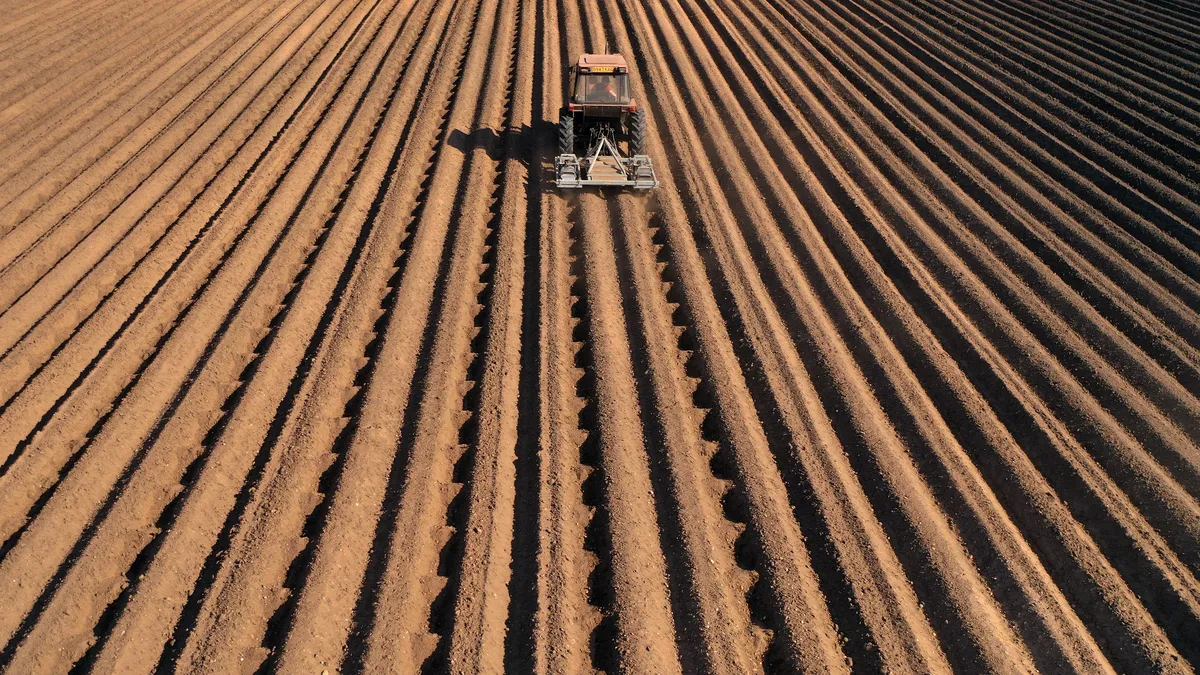Charles Miller is director of strategic alliances and development for Solynta, an agtech firm focused on hybrid potato seeds. Opinions are the author's own

Technology is a critical tool for farmers to comply with new sustainability regulations and keep up with mounting consumer pressure to take action on climate change. But as the experience of Europe's potato industry shows, new products won't be enough to drive change unless farmers are on board.
Potato farmers have had a challenging few years. In 2022, a severe drought led to a significant reduction in the European Union's anticipated potato crop, up to 11%. The following year, unusually wet weather severely impacted the crop. And, as in most years, there was the threat of potato blight —impacting both organic crops and conventional production.
Despite these challenges, farmers still had to comply with Europe's Farm to Fork, a plan to create a more sustainable and localized food system. Among other requirements, it calls for reduced chemical use and a shift to sustainable practices, posing the question of how to maintain or even increase food production.
In the face of these challenges, we saw evolution. The European potato industry has been overhauling itself, and it has only been possible with change management — namely, willingness to try, patience with the process, and a deep understanding that the way of doing things must evolve.
This mindset made it possible for new technology to flourish as farmers looked for new ways to comply with the Farm-to-Fork strategy. Targeted breeding, which was relatively recently applied to potatoes, improved resistance to disease and reduced the need for pest and disease control chemicals.It also allows farmers to grow crops from true potato seeds instead of traditional seed tubers, offering logistical advantages.
Yet, new technologies can’t succeed in a vacuum. A vital part of the potato industry’s success to date has been the openness of farmers worldwide to try new processes. Long-standing practices have deep roots, and altering them brings natural resistance as well as economic concern. Addressing the hesitations of farmers was as crucial as the innovations themselves.
We were, however, successful. And the potato industry now has alternatives to the more expensive supply chain of seed tubers, the high costs of crop protection products , and the continuous battle between emissions limits and production requirements. By adopting agtech, the potato industry is evolving into one with more efficient and sustainable farming practices. By adopting it with a mindset of change management, we became more resilient, too.
There are technologies available in many sectors of agriculture that can deliver similar results to the potato industry. But any new technology should come as part of a practical solution that addresses real-world farming challenges instead of creating more issues.
There must be empathy, understanding, and clear communication alongside technological advancements if policymakers and agribusinesses hope to convince farmers to change. The role of thought leadership can’t be ignored here: Driving agricultural change requires more than just technological innovation; it demands a shift in mindset and approach, which can be accomplished through education and training.
Farmers have and will continue to adopt new techniques and technologies to feed the world —we are always preparing for the next challenge, the next season, the next change. The only difference now is that agricultural technologies, and mandates, are advancing at a rapid pace. This requires even more flexibility, empathy and willingness between agricultural technologists and our fellow farmers so we can all deliver on our mission and passion for food.










